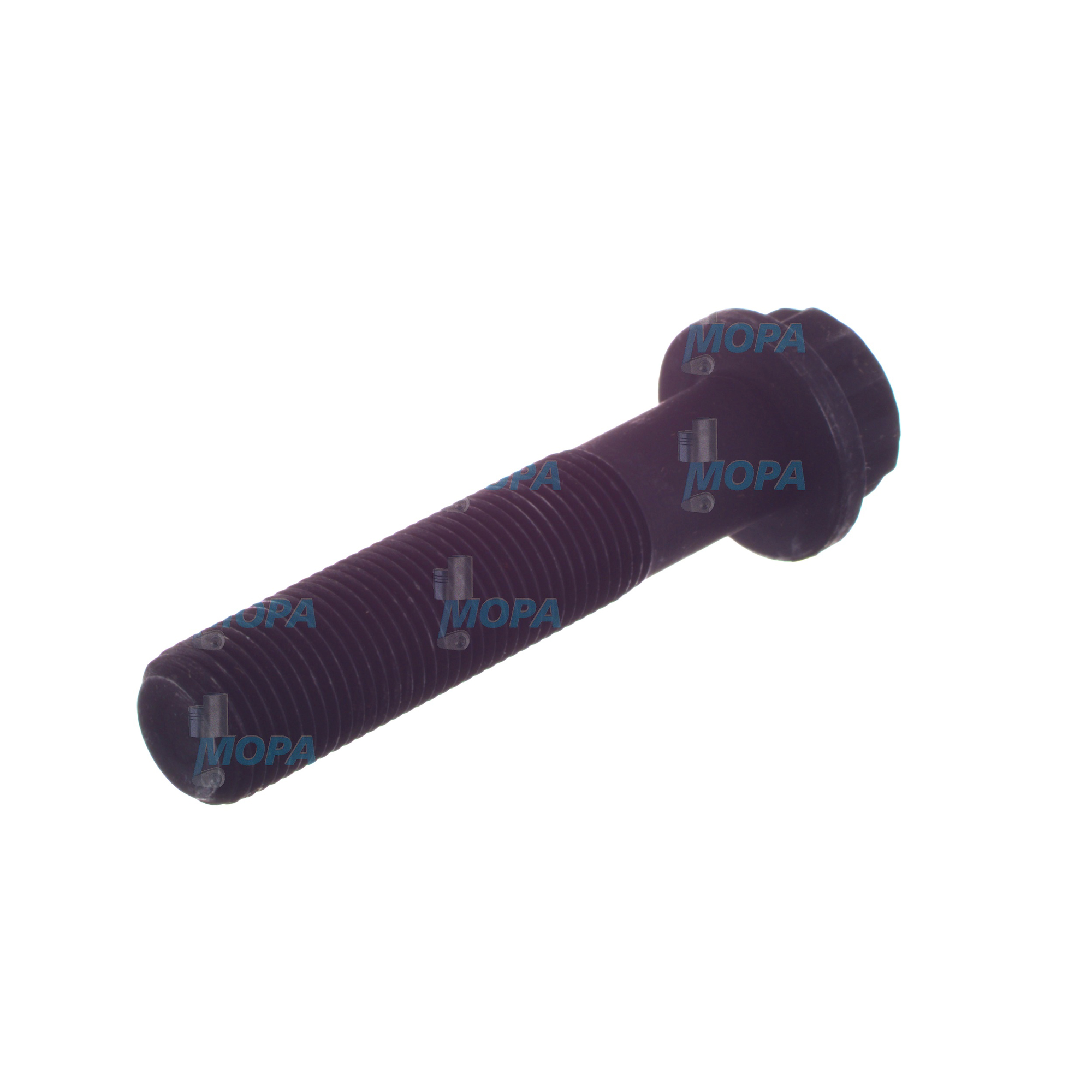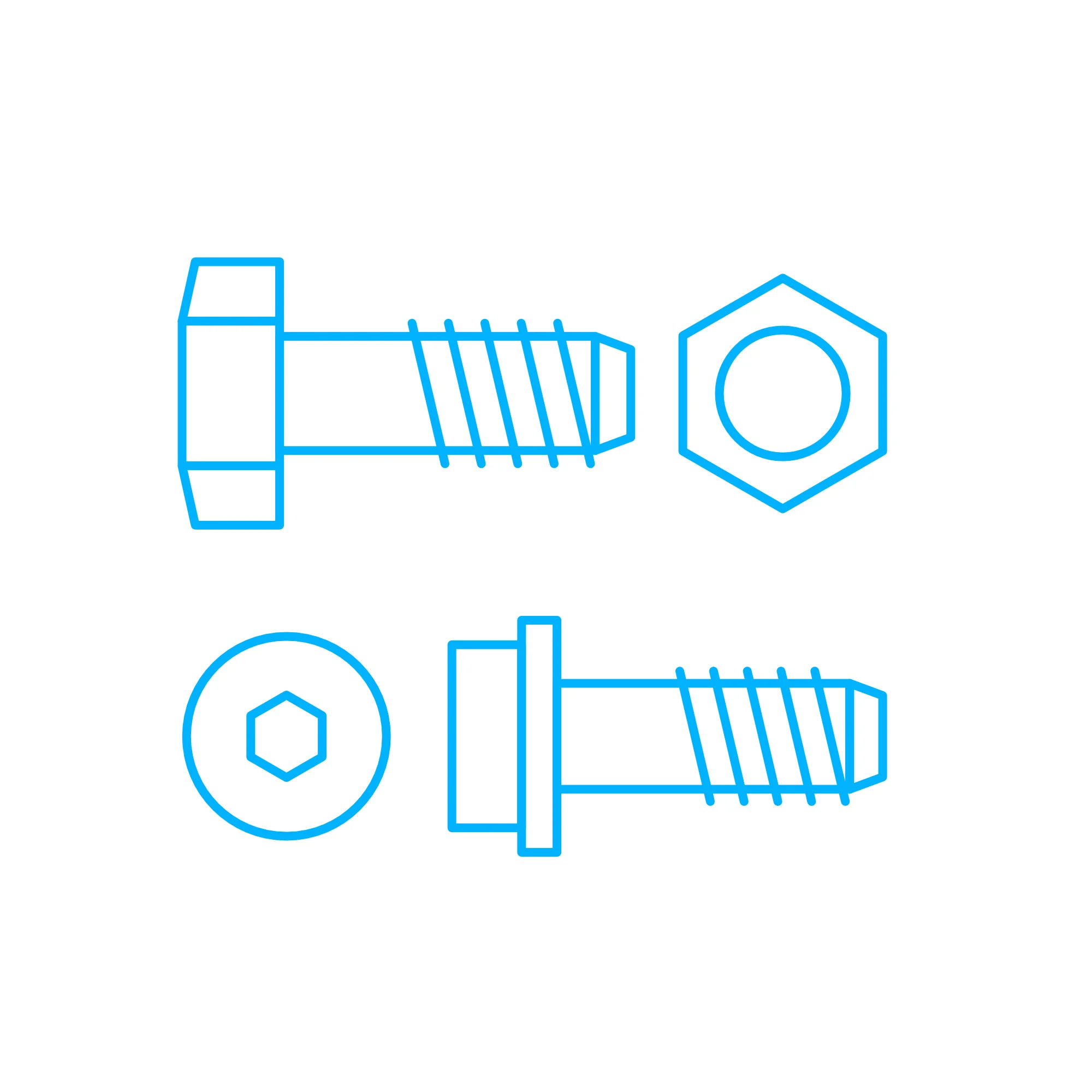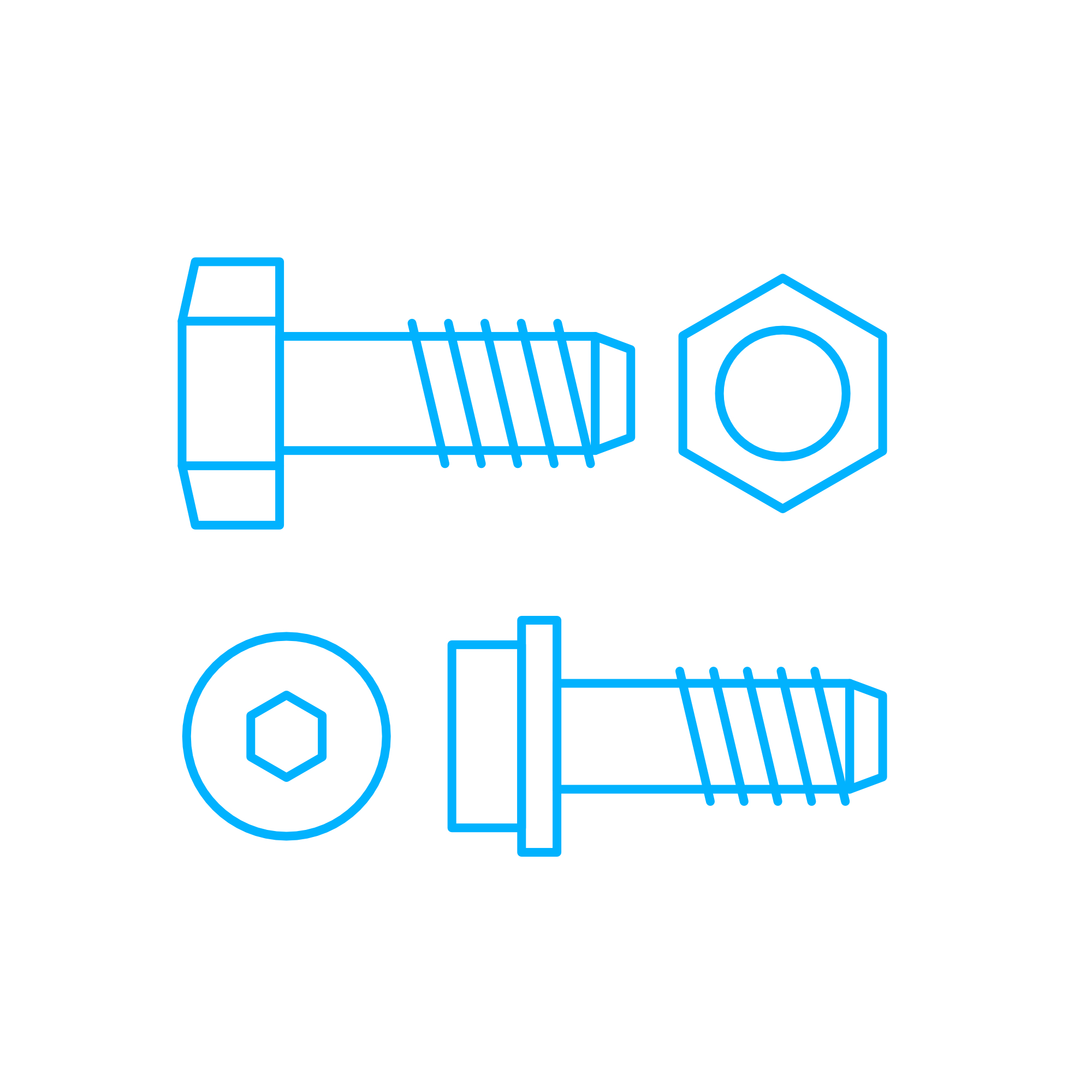KNURLED SCREW for diesel and gas engines — Screws for critical engine assemblies
Screws are high-precision fastening components that create controlled clamping forces across joints, gaskets, and housings. In engines, they secure everything from cylinder heads and bearing caps to turbocharger casings, exhaust manifolds, and instrumentation. As part of the larger fastener family, screws convert tightening torque into axial preload, locking components together so they can withstand dynamic loads, vibration, pressure, and thermal cycling. Without the right screws, even a perfectly designed engine cannot deliver reliable power, efficiency, or safety.
Within this category, the KNURLED SCREW plays a distinct role. It allows tool-less, repeatable adjustments on covers, sensor brackets, access panels, and control housings—especially useful in a marine engine environment where quick inspections and fine tuning are frequent. Alongside hex head, socket head, stud-and-nut combinations, and specialty designs, properly specified screws are essential across diesel engine platforms and gas engines alike.
Technical function of Screws and KNURLED SCREW in diesel and marine engine applications
Engine screws work by generating a precise clamp load that counters operational forces. When torqued, the screw shank stretches elastically, acting like a spring that tightly compresses the joint. This preload resists loosening from vibration and thermal cycles, maintains gasket compression to prevent leaks, and preserves alignment for rotating equipment. The torque-to-tension relationship depends on thread geometry, friction coefficients, lubrication, surface finish, and material grade. Methods such as torque-angle tightening and yield-based tightening help achieve consistent preload in critical joints like cylinder heads and main bearing caps.
Across a diesel engine, screws secure core assemblies: main bearing caps, connecting rod caps, rocker housings, injector clamps, accessory brackets, and exhaust and intake systems. On a marine engine, corrosion-resistant specifications (e.g., coated alloy steel or stainless in appropriate grades), thread tolerances (e.g., ISO metric with 6g/6H fits), and locking strategies (prevailing torque nuts, thread adhesive, tab washers, safety wire, or wedge-lock washers) are common. High-temperature areas may require heat-resistant alloys (e.g., A286, Inconel) or coatings that protect against oxidation and coking.
The KNURLED SCREW adds usability: its textured head improves grip for manual fastening where frequent access is required—ideal for filter covers, sensor windows, inspection caps, or control enclosures. In OEM parts contexts, a KNURLED SCREW for a marine engine or diesel engine is often supplied with defined head knurl patterns, captive designs (retained in panels), and specific surface finishes to balance corrosion protection with easy handling.
· High and repeatable clamp load across critical joints.
· Resistance to vibration loosening and thermal cycling.
· Material grades aligned to load, heat, and corrosion demands.
· Precision threads and tolerances for predictable torque-tension.
· Suitable coatings for marine atmospheres and exhaust heat zones.
· Locking features to maintain joint integrity under shock loads.
· KNURLED SCREW options for tool-less access and adjustments.
· Traceability and documentation for service planning and audits.
Importance for engine operation: why Screws determine reliability and service life
Screw integrity directly influences uptime, fuel efficiency, emissions stability, and crew safety. Loss of preload can lead to gasket blowouts, fluid or exhaust leaks, hot gas erosion, and increased vibration. Thread damage or fatigue can cause misalignment, bearing distress, and even catastrophic component separation. In marine engine rooms, crevice corrosion and galling can seize fasteners, complicating scheduled maintenance and risking delays. On high-output diesel engine applications, improper screws can trigger turbocharger failures, manifold warping, or sensor drift due to loose mounting points—issues that quickly escalate operating costs.
Routine measures help mitigate these risks: correct tightening procedures (torque-angle or elongation), clean and lubricated threads as specified, ultrasonic bolt load verification on critical joints, and timely replacement when elongation limits or corrosion thresholds are reached. Using properly specified screws ensures predictable preload, stable gasket compression, and consistent alignment across thermal cycles, extending the service life of the surrounding components.
Advantages of OEM spare parts suitable for Screws and KNURLED SCREW OEM parts
OEM spare parts suitable for screws safeguard performance by matching the engineered specification of the joint. Dimensions, tolerances, material class, and coating systems are aligned to the engine manufacturer’s preload targets and service intervals. This precision is vital for cylinder head joints, turbocharger connections, and exhaust assemblies where small variances in friction or thread fit can produce large differences in clamp load.
With OEM spare parts suitable for screws and KNURLED SCREW OEM parts, purchasers and shipowners benefit from predictable assembly behavior and long-term reliability. Material certificates, heat/lot traceability, and defined surface treatments support consistent torque-tension outcomes and help avoid hidden costs from rework, downtime, or premature wear. In budget terms, choosing the correct specification reduces unplanned maintenance and protects surrounding components—an important lever for total cost of ownership in fleet operations.
How OEM spare parts suitable for Screws support engine performance and safety
By preserving design intent—thread geometry, head design, hardness, and coating—OEM spare parts suitable for screws minimize the risk of preload scatter and fatigue, reduce torque scatter from inconsistent friction, and maintain the corrosion resistance required in a marine engine environment. For KNURLED SCREW applications, OEM parts maintain the grip profile, captive function, and dimensional control that allow quick yet secure, tool-less access in diesel engine and gas engine control housings.
MOPA — your partner for OEM spare parts Screws, including KNURLED SCREW
MOPA is an experienced and reliable partner for OEM spare parts Screws across diesel and gas engines. We focus on speed, quality, and security in the trade of OEM parts, sourcing to exact specifications and providing the documentation and traceability that technical decision-makers require. Whether you need high-temperature exhaust screws, corrosion-resistant marine engine fasteners, or KNURLED SCREW solutions for quick-access panels, MOPA streamlines procurement with responsive logistics and knowledgeable support.
Our team assists with cross-referencing part numbers, aligning coatings and property classes to your application, and supplying complete fastener kits for overhauls. From cylinder head joints to instrumentation screws, MOPA helps you maintain preload integrity, reduce assembly variability, and keep engines running at planned performance levels.
Conclusion: KNURLED SCREW and Screws as small parts with major impact
Screws, including the KNURLED SCREW for marine engine and diesel engine applications, are foundational to reliability, efficiency, and safety. Selecting OEM spare parts suitable for screws ensures consistent preload, corrosion resistance, and service life—protecting budgets and maximizing uptime across demanding engine operations.



